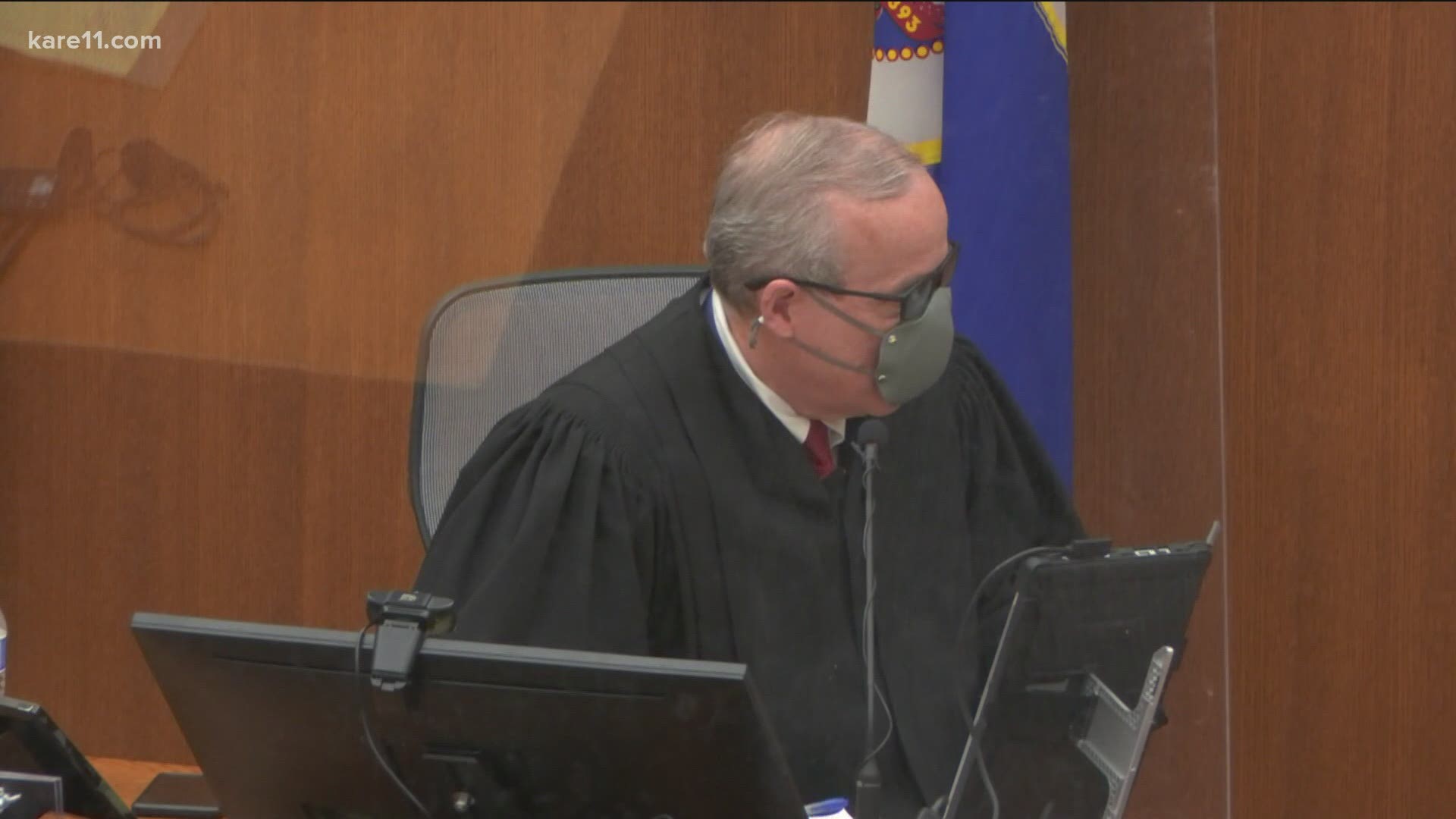MINNEAPOLIS — Editor's note: The above video is from March 5, 2021.
The Minnesota Supreme Court says it will not take up the issue pertaining to third-degree murder in the trial of former Minneapolis police officer Derek Chauvin.
The court denied the Chauvin legal team's request for further review, and the matter now must be settled by Hennepin County District Judge Peter Cahill, as to whether or not third-degree murder will be added to the array currently leveled against the former Minneapolis police officer.
Chauvin is already charged with second-degree murder and second-degree manslaughter in the May 2020 death of George Floyd.
According to KARE 11's Lou Raguse, it is expected Cahill will address the matter at 8 a.m. Thursday. The Minnesota Court of Appeals ruled Friday that Cahill had to "reconsider" his decision not to reinstate third-degree murder against Chauvin. However, they wrote in their opinion that he can still hear arguments from the defense. So it's possible he could still decide not to add the charge.
RELATED: Court of Appeals orders district court to reconsider Derek Chauvin 3rd-degree murder charge
If Cahill chooses not to add third-degree murder to the list of charges against Chauvin, there is the possibility the state may again try to appeal that decision, which could result in further delays.
Initially, Chauvin was charged with third-degree murder in George Floyd's death, but the defense asked to have the charge dropped for lack of probable cause and a judge agreed.
On Friday, March 5, the Minnesota Court of Appeals ruled that removing the third-degree charge was an error on the judge's part, and that the district court needs to reconsider the state's motion to reinstate third-degree murder.
On Monday, the defense officially asked the Supreme Court to review the third-degree charge. But that request was denied on Wednesday, two days into jury selection.
These appeals have already delayed the trial slightly, with jury selection moved from Monday to Tuesday while the prosecution argued that everything should be on hold until the issue is resolved.
When Judge Cahill said he planned to move forward anyway, the prosecution asked the Minnesota Court of Appeals to issue a "writ of prohibition" pausing the jury selection. The court of appeals did say it would consider that request on its merits, but Judge Cahill told the prosecution that "Unless the court of appeals tells me otherwise, we're going to keep moving."
Now that the defense's request to the state Supreme Court has been denied, the judge can make a decision on the third-degree murder charge and the prosecution's request for a writ of prohibition may be moot.
However, there is still a separate appeal that could influence the chain of events in the Chauvin trial. Former Minneapolis police officer Mohamed Noor was convicted of third-degree murder in 2019, for the shooting death of Justine Ruszczyk Damond.
Third-degree murder is a complicated charge that has a legal history of only being applied in situations where the "death-causing act" is more broad and not directed at a single person. However, the Minnesota Court of Appeals recently upheld that charge against Noor, saying that it can indeed apply when the death-causing act is directed at an individual.
Noor appealed and the state Supreme Court will hear his case in June.
Part of Judge Cahill's reasoning in declining to add that charge against Chauvin was that even though the state court of appeals had ruled that third-degree murder can be used when the victim is a single person, the state Supreme Court had yet to review the decision. Therefore, he didn't see the court of appeals decision as "precedential."
However, the court of appeals opinion on Friday reaffirmed for Judge Cahill that their rulings are precedential until and unless they're overruled. And because the state Supreme Court declined to review that issue, their decision stands.
Whatever the state's highest court decides about the nature of the charge in the Noor case, it could have implications on whether the charge is allowed down the road - whether or not Judge Cahill decides to allow it for the time being.

